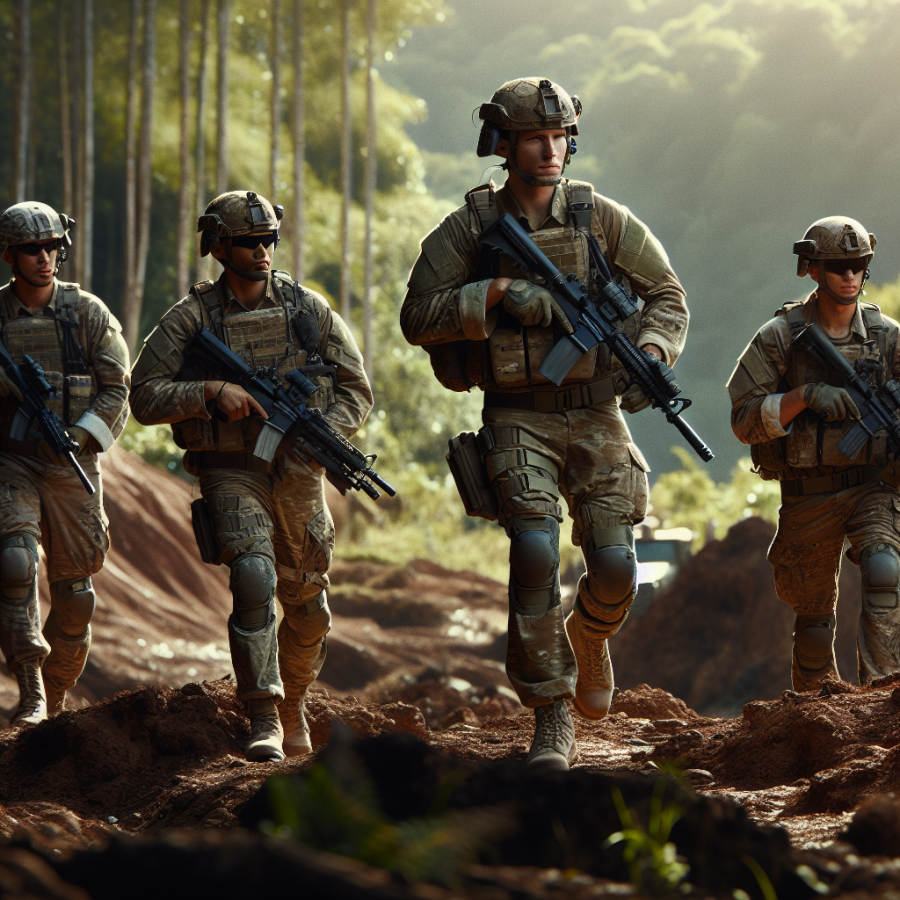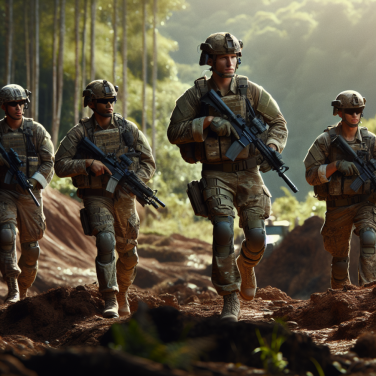Nightfall Maneuvers: The Unseen Sacrifices of Keeping Watch
Nightfall Maneuvers: The Unseen Sacrifices of Keeping Watch
As the darkness envelops the landscape, a distinct transformation unfolds within the ranks of military personnel on patrol. The shift to night operations is more than a mere change in visibility; it is a comprehensive alteration in the physical and psychological demands placed upon those who serve. Under the cloak of darkness, service members engage in a delicate ballet of heightened alertness and methodical caution, performing their duties with the knowledge that the night conceals not just them, but potential threats that lie in wait.
The environment during nocturnal hours is treacherously deceptive. Shadows cast by the dim light of the moon or artificial sources can play tricks on the eyes, and what appears to be a safe path may hold unforeseen dangers. Those on night duty must sharpen their senses; they learn to discern the subtle stir of the wind, the quiet rustling of foliage, and the muted footsteps that may signify an approaching entity. For patrols, every sense is dialed to its utmost sensitivity, creating a tapestry of perception woven from the faintest whispers of the night.
Moreover, the circadian rhythm of the human body is naturally inclined to rest as night falls. Fighting against this biological urge requires a considerable toll on one's physical and mental stamina. The invisible sacrifice of sleep disruption places an onus on military members to maintain a state of readiness despite their natural inclinations to sleep. This often results in increased stress levels and the necessity for acute management of fatigue. They must employ a variety of strategies to remain vigilant, from engaging in low-level physical activity to maintaining an active line of communication with fellow sentinels.
The solitude of the night patrol can also lead to a profound sense of isolation. Separated from the camaraderie that daylight operations foster, individuals must often contend with the weight of their thoughts and the span of silence that accompanies the shroud of night. This solitude does not just bear down on one’s spirits; it also sharpens their resolve, as the knowledge that others are counting on their vigilance fortifies their commitment to their mission. The quiet solidarity of a night watch creates an unspoken bond among those who have experienced the silent hours between sunset and sunrise, an understanding that they are the unseen shield against the perils of the dark.
To mitigate these challenges, the military has evolved various tactics and technologies.
Read also:
The Ultimate Guide to Enjoying the Open Road on a Long Drive
Dawn's First Light: Reflections From the Frontline's Silent Guardians
As the sun breaches the horizon and bathes the world in its first light, the day's quiet beginning is a stark contrast to the relentless vigil kept by the soldiers who have stood guard through the night. These silent guardians, clad in their military uniforms, are the epitome of dedication and resilience. The stillness of dawn is not just a transition from night to day for them but a testament to the unwavering vigilance that has been maintained while the world slumbered in peace.
Patrolling the perimeters of the base, soldiers are taught to be the eyes and ears that never rest. They learn to parse through the night's ordinary sounds to detect anything out of place. Each rustle of leaves, the softest tread on earth, or the distant rumble of engines can hold the clue to a possible threat. The weight of responsibility is heavy on their shoulders; a lapse in attention could mean the difference between safety and peril.
The routine may seem monotonous to those on the outside—the same checkpoints, the monologue of radio check-ins, the same rounds of inspection—but to the military patrol, it is a ritual that refines their sense of purpose. The military patrol does not merely walk a path; they immerse themselves in their surroundings, always alert to changes, always ready to defend.
Training for these soldiers is both rigorous and comprehensive, instilling in them the skills necessary to react to any scenario with precision and efficiency. Drills become second nature, as do the weight of their gear and the tools they carry—each item has a purpose, each gear choice is strategic. Their uniforms, creased and worn from service, are badges of honor, symbolizing their commitment to their duty.
The camaraderie among the soldiers on patrol also plays a crucial role. Each understands that the success of their mission relies on unwavering trust and unity. Communication is key, and every member knows to observe not just for their safety but for the well-being of their fellow soldiers. The bond forged in the silent hours of the night is unbreakable, often transcending the mere colleague relationship to that of a close-knit family.
Throughout their shift, these soldiers partake in the untold stories that unfold beyond the public eye. They witness the subtleties of the night—how the cold seeps in just before dawn, how the wildlife cautiously surveys their territory, and how the stars fade to give way to daylight.




